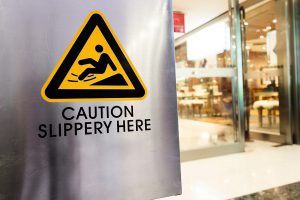Premises Liability In Florida
 Michael Babboni
Premises Liability
The summer grilling season is quickly approaching, and that means cookouts, pool parties, and backyard sports. Unfortunately, with all that fun, there are bound to be some accidental injuries. What happens when someone is injured on another’s property?
Michael Babboni
Premises Liability
The summer grilling season is quickly approaching, and that means cookouts, pool parties, and backyard sports. Unfortunately, with all that fun, there are bound to be some accidental injuries. What happens when someone is injured on another’s property?In Florida, there is an entire body of premises liability law, which creates duties for a property owner to make sure that their properties are safe for visitors. This law opens up both homeowners and business owners to lawsuits from people that are injured on their properties.
Although property owners have a duty to keep their property safe for others on their property, it would be odd to envision a situation in which a burglar who trips over a broken tile and breaks his arm while falling would be able to sue the property owner for failing to repair the broken tile.
To prevent this type of situation, Florida premises liability law differentiates visitors into three different categories. The duty of care a property owner owes is different for each of these categories.
Invitees
There are two types of invitees under Florida law. A public invitee is a person who is invited to enter the property as a member of the public for a purpose for which the land is held open to the public. For example, a child playing on a public park would be a public invitee.
A business invitee a person who is invited to enter the property for a purpose related to business dealings with the property owner. This category essentially covers all customers of brick and mortar business, such as shoppers in a grocery store, drivers at a gas station, or diners in a restaurant.
Property owners owe the highest duty of care to invitees. With respect to invitees, property owners are requires to maintain the property in a reasonably safe condition. The property owner must repair or notify invitees of any known dangers on the property. Business owners especially have the duty to regularly inspect their property for dangerous conditions, opening them up to liability for hazards they should have known about.
Licensees
Licensees are those who enter the land solely for their own convenience or pleasure, whether or not they are explicitly permitted by the property owner to enter the land. This category includes either invited or uninvited social guests. Examples of this category would be friends or family members invited to a dinner party, or neighbors who unexpectedly drop by.
With respect to licensees, the property owner must maintain the property in a reasonably safe manner and repair any unsafe conditions. The property owner must also warn licensees of known dangers on the property, but do not have any obligation to routinely check for hazards.
Trespassers
Trespassers are those that do not have permission to be on the property. This includes burglars, people who have simply wandered onto the property, or family and friends who do not have permission to be on the property.
Florida premises liability law requires the property owner to exercise minimal care with respect to trespassers. Essentially, a property owner has the duty not to intentionally or recklessly injure a trespasser. The most common example of something a property owner may not do, even to trespassers, is to set life-threatening traps on the property.
There is one exception to the trespasser rule: children. Under the Attractive Nuisance Doctrine, if the property owner has something on his property that can be seen as attractive or enticing to a child, the property owner has a duty to take reasonable steps to protect children from the danger.
For example, a pool or a hot tub is commonly seen as an attractive nuisance and a property owner would likely be held liable if a trespassing child were injured in the pool unless the pool had a safety cover installed or was surrounded by a fence and locked gate.
A tree house would also likely be seen as an attractive nuisance as a child.
